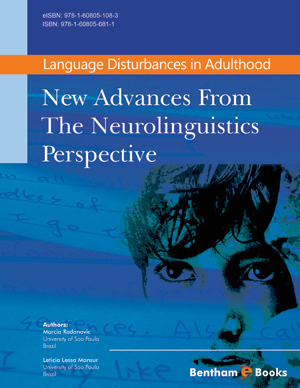Abstract
Language disturbances are frequently found in several forms of dementia and may greatly compromise patients' daily performance in cognitive and social tasks, as well as impair their quality of life. In this text the linguistic-cognitive alterations of aging, emphasizing language, will be presented and alterations in ‘ mild cognitive impairment’ (MCI) shall be briefly highlighted. Subsequently, the language characteristics of different dementias will be addressed: Alzheimer's disease (AD), Vascular Dementia (VD), Frontotemporal Dementia (FTD) and Primary Progressive Aphasia (PPA). The hallmark of language impairment in AD is related to lexico-semantic aspects, while in VD word recognition, naming and repetition are more impaired. Impairment of language in VD is in great part a consequence of a disexecutive syndrome (including working memory dysfunction). In FTD, discourse organization and pragmatic alterations predominate. PPA can be subdivided in several clinical subtypes including agrammatic, semantic and logopenic deficits. Prominent semantic deficits appear in the so-called Semantic PPA (SPPA); in nonfluent PPA (NFPPA), the language production is reduced and effortful with marked agrammatism and difficulties in comprehension of complex grammatical structures. Logopenic PPA (LPPA) is characterized by deficits in lexical recuperation and repetition of sentences, with preserved word comprehension, and absence of agrammatism.
Keywords: Dementia, Alzheimer's disease, Frontotemporal dementia, primary progressive aphasia






















